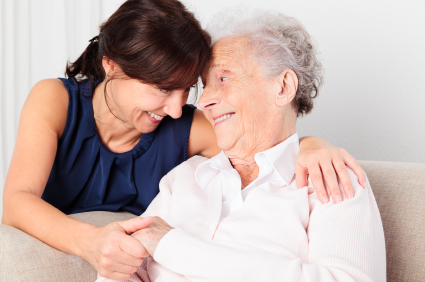AARP Hearing Center
This is a guest post from AARP Illinois staffer Kathy Klaper. Check back every Monday morning for more information and resources on caregiving.

Never in my wildest dreams did I think I would experience life as a caregiver at age 36. At the age of 45, my husband had a massive heart attack. Needless to say my life changed in an instant and I was faced with decisions of life versus death for my husband. I could either discontinue life support or commit to providing total physical care to my husband for the rest of his life. I chose total care over discontinuing life support. I knew it was the right decision even if my life would change forever. After several weeks of hospital and nursing home care, I brought my husband home to care for him. I hired a live in caregiver to assist me so I could keep working, but when I got home from work, my job continued and I took over his care. Because I had a nursing background and a history of working in intensive care and the emergency room, I was familiar with caring for patients like my husband. But taking care of a loved one is personal and could not compare to caring for my patients in the hospital. I went through emotions I didn’t even know I had, but I also felt positive that one day my husband would wake up and greet me with that smile I loved. Unfortunately, after 8 months of hope, my husband passed away. I knew he was at peace when I saw that smile I was waiting for. I experienced every kind of emotion you can imagine: relief, sadness, loneliness, anger. At age 36 I was a widow. But I would not have changed any thoughts or decisions I made to care for my husband. It changed my life, and after time passed, other families came to me for questions about their loved ones. Faced with the same decisions I had to make for my husband, they felt lost. I became the go to person for many families looking for resources. I realized that no one is ever prepared to face the inevitable, but unfortunately it’s part of life.
What helped me was family support. Those family members that I knew would be my support and help me through the tough times, and keep me sane when I thought I was going out of my mind.
When my mom was diagnosed with Alzheimer’s Disease, I didn’t hesitate to step up and help my dad with her care. My father was so distraught by her change in personality that he didn’t know how to care for my mother. After several years, my mother passed away, but my father was now facing the same emotions I felt when my husband passed away. This difference was that I was 36 years old and my father was in his 80’s. His health was not good and, several months after my mother’s passing, my father suffered a fall which left him disabled and in a wheelchair.
Caring for my father was both a challenge and an opportunity. His sense of humor was always his strongest personality trait and he didn’t let me down. We laughed and cried together. We sang his favorite song, “You Are My Sunshine”, and we fought about things he refused to do. I had to have the house modified and the bathroom remodeled to fit his wheelchair. After hiring, and then firing, seven caregivers to care for my father while I worked, I finally found the person who would not only take care of my dad, but became a friend and part of our family for five years before dad passed away.
Three times I have been a caregiver. Three different ages, illnesses and situations. As I stated earlier, support is critical and needs to be part of your care as a caregiver. I also found that keeping a journal was a great way to keep memories alive and is a great keepsake to pass down to family members. I'll talk more about my journey as a caregiver in the next few weeks.
In the meantime, I encourage you to check out Prepare to Care - an excellent resource for caregivers from AARP. I also invite you to share your caregiving stories with us here on the blog. Until next Monday.....































































